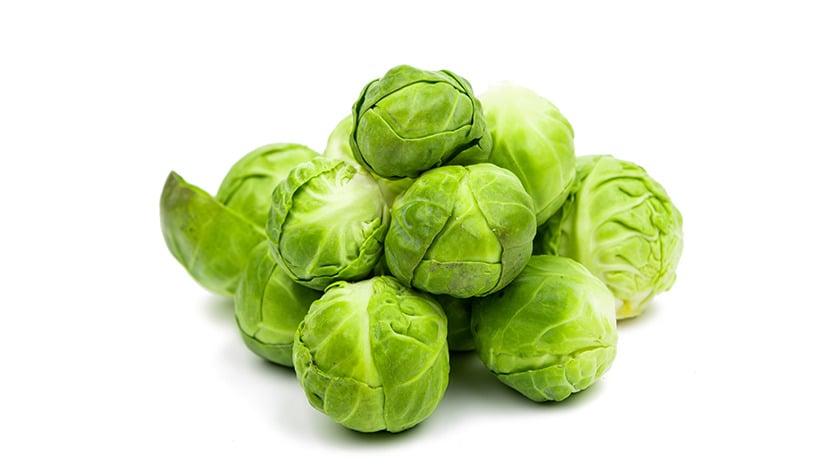Brussels sprouts can be eaten cooked or raw, boiled or chopped up and thrown into a salad mix. But it may surprise you to know that cooking brussel sprouts can have an effect on the vegetable’s overall nutrition.
Brussels sprouts contain glucosinolates, according to Healthline, which appear to have health benefits such as being anticancer. However, glucosinolates can also reduce the absorption of iodine, which can disrupt the function of your thyroids and lead to a goiter, which is an enlarged thyroid gland.
People with any pre-existing thyroid issues might want to limit their consumption of glucosinolates, but eating brussel sprouts as part of a healthy diet are not likely to cause any issues. If you’re worried, boiling brussels sprouts can reduce the level of glucosinolates and preserve antioxidants, while steaming them preserves the level of glucosinolates. People with IBS should similarly avoid overconsumption, as brussels sprouts can increase gas and cause stomach upset.
Many of us do not have a taste for brussel sprouts regardless of how they are prepared. A nutritionist, Dr. Cunliffe, explained this phenomenon to Cosmopolitan.
“Innately, we’re born to reject bitter foods because for every one plant or potential foodstuff in nature which is bitter and good for us,” says Dr. Cunliffe. “There’s probably 50 which are bitter and poisonous.”. This reaction of rejecting bitter foods is common, despite the high nutritional value which many bitter-tasting vegetables have.
Brussels sprouts are an excellent source of fiber, potassium, and vitamin C, writes Men’s Health. These small green vegetables can help with the development of stem cells in your muscles, which helps them grow and repairs them. Roasting them in a pan rather than boiling them will preserve their nutritional value in the same way steaming them does, and can provide an excellent addition to your go-to gym protein. But be careful not to roast them at a temperature above 284 degrees fahrenheit, as too much heat will once again reduce the level of glucosinolates.
Harvard T.H. Chan recommends limiting brussels sprouts consumption to once a week, as the health benefits of this vegetable can turn into possible health problems if you eat it too often. Salad, coleslaw, and sandwiches are just a few of the many meals into which you can incorporate brussels sprouts without too much hassle.
Helpful tip: buying brussels sprouts with the stems still attached prolongs their freshness, so you can store them in your fridge longer!
Sources:
https://www.menshealth.com/uk/nutrition/a30119628/brussels-sprouts-benefits/
https://www.healthline.com/nutrition/can-you-eat-brussel-sprouts-raw



